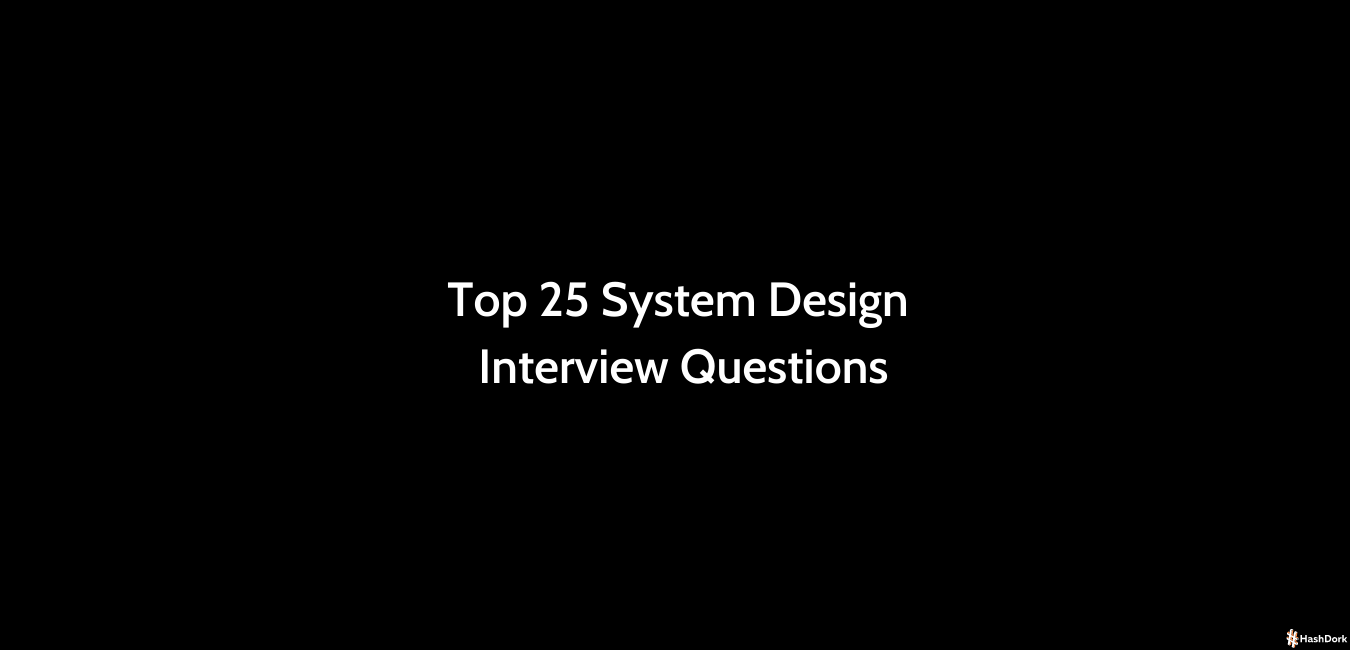Table of Contents[Hide][Show]
- 1. Why did you decide to work in social media management?
- 2. Which social networking sites are your favorites, and why?
- 3. In the past, what social media accounts have you managed?
- 4. What were some of the toughest obstacles you had to overcome as a social media manager, and how did you do it?
- 5. What is your opinion of our company’s brand?
- 6. How do you remain current with the newest social media trends and developments?
- 7. How do you assess a social media campaign’s effectiveness?
- 8. How do you respond to interruptions in your plans?
- 9. How can you create content for social media that appeals to your target audience?
- 10. Which social media management solutions are the most user-friendly, in your opinion?
- 11. How do you respond to criticism or comments made on social networking sites?
- 12. What material would you suggest creating more of, and why, given our present social media presence?
- 13. How do you go about creating a social media strategy?
- 14. What has your experience been with sponsored social media advertising?
- 15. What analysis of social media data can be used to inform strategy?
- 16. How can you create engaging content for social media?
- 17. What do you think about Instagram Reels and TikTok? Using These Platforms, Can We?
- 18. How do you go about managing communities on social media?
- 19. Do you have any experience managing crises on social media?
- 20. How do you concurrently manage several social media accounts and campaigns?
- 21. What is your background in setting up and controlling a social media budget?
- 22. What is your background in influencer marketing?
- 23. How can you guarantee that each piece of content you share on social media is in line with your brand?
- 24. What has your experience been with social media listening?
- 25. How do you go about developing a social media brand voice and tone?
- 26. How Can Customer Service Fit Into Your Overarching Strategy?
- Conclusion
Maintaining a company’s online presence and developing strategies to grow and engage its audience are your responsibilities as a social media manager.
It can be necessary to create and curate content, manage social media campaigns, monitor performance metrics, and collaborate with other departments in order to establish a consistent brand message.
Social media managers must be able to navigate the continuously changing social media platform landscape and stay current with best practices and industry trends.
There are a number of important questions you should be ready to answer if you’re applying for the role of social media manager.
These questions can concern your expertise with paid social media advertising, your methodology for producing inclusive and representative content, and your capacity for managing crises on social media.
Additionally, you can be questioned about your knowledge of project management, budgeting, and your capacity for productive teamwork with other organizational divisions.
The capacity to adapt and innovate in reaction to changes in the industry is ultimately required of a successful social media manager, as is a solid awareness of the function social media plays in an organization’s entire marketing and communications strategy.
We will be looking at the top interview questions to become a social media manager.
1. Why did you decide to work in social media management?
I’ve always been intrigued by how technology might foster better interpersonal relationships and communication. Because I enjoy writing and interacting with people online, social media is an amazing venue for doing that, making it the perfect match for me.
2. Which social networking sites are your favorites, and why?
Instagram’s emphasis on visual content and capacity to produce great graphics, photos, and videos that convey ideas are two reasons why I find it appealing.
I really enjoy Twitter’s fast-paced environment where you can have in-the-moment conversations and keep up with hot topics.
3. In the past, what social media accounts have you managed?
This will reveal the candidate’s experience with various social media platforms, the fields in which they have worked, and whether they are accustomed to managing huge or modest following networks.
You should ideally find out whether the applicant has knowledge of the platforms you employ.
While having the right experience is unquestionably desirable in a candidate, the level of the position might not require it to be the most important quality.
To gain a deeper insight into the person’s training, motivation, and critical thinking abilities, weigh the response to this question against the ones below.
4. What were some of the toughest obstacles you had to overcome as a social media manager, and how did you do it?
The answer can vary. Please answer it based on your experience.
Managing many social media accounts and campaigns for various customers with differing goals, demographics, and content kinds has been one of the biggest problems I’ve faced.
In order to get around this, I’ve honed my project management abilities, utilizing apps like Asana or Trello to keep track of all the moving elements and due dates.
5. What is your opinion of our company’s brand?
The response to this question can indicate how well-prepared the applicant was for the interview.
Two essential skills for effective social media managers are research and a thorough grasp of the brand; if applicants haven’t taken the time to learn about your company, it may indicate a lack of thoroughness.
6. How do you remain current with the newest social media trends and developments?
I prioritize keeping up with industry blogs, going to conferences and webinars, and connecting with other social media experts.
To get knowledge from their experiences and perspectives, I also follow significant thought leaders and influencers on social media sites like Clubhouse, LinkedIn, and Twitter.
7. How do you assess a social media campaign’s effectiveness?
I think a social media campaign should succeed if it achieves the objectives and goals specified in the original strategy. Metrics can involve engagement rates, clicks, conversions, brand mentions, or money made, depending on the campaign’s objectives.
To improve the next efforts, it’s critical to routinely analyze data and assess performance.
8. How do you respond to interruptions in your plans?
This inquiry probes deeply into the personality of your potential social media manager candidate. Many SMMs are meticulous, task-oriented people who prefer to work on a to-do list or according to a timetable.
But as everyone is aware, things do happen. It’s crucial to understand that any potential SMM can roll with the punches when necessary.
9. How can you create content for social media that appeals to your target audience?
I start by learning about the target audience’s interests, desires, and problems in order to provide content that is pertinent to them. I accomplish this by utilizing resources like audience research and social listening.
Along with keeping up with current affairs and popular culture, I also make sure the material adheres to the brand’s values and tone.
10. Which social media management solutions are the most user-friendly, in your opinion?
To schedule posts, track analytics, and monitor activity on social media, I feel confident using a range of social media management tools, including Hootsuite, Sprout Social, and Buffer.
11. How do you respond to criticism or comments made on social networking sites?
It’s crucial to react promptly and professionally to unfavorable remarks or criticism, recognizing the problem and, if required, providing a resolution or an apology.
Taking the topic offline is crucial if it becomes tense or calls for a more in-depth discussion. Last but not least, I keep note of critical remarks or feedback to determine if there are any patterns or problems that need to be addressed.
12. What material would you suggest creating more of, and why, given our present social media presence?
Examine your candidate’s potential as a social media manager by looking into his or her qualifications. How willing are they to take chances? Do they enjoy watching videos?
Do they prefer one platform over another?
Take into account what you know to be true to your brand and what has previously succeeded while analyzing their responses. But also bear in mind that applicants won’t have access to your inside knowledge, therefore it’s crucial to take into account their logic and thought processes.
13. How do you go about creating a social media strategy?
I have a solid understanding of the brand, its target audience, and its goals before I start building a social media plan. I consider the competition and market trends, as well as the brand’s present social media presence and content.
Based on this information, I develop a comprehensive strategy that details the content areas, message, tone of voice, platforms to be employed, and key performance indicators (KPIs) for success assessment.
14. What has your experience been with sponsored social media advertising?
I have an extensive understanding of paid social media advertising since I have built and managed ad campaigns on platforms like Facebook, Twitter, and LinkedIn. I use audience targeting and retargeting strategies to target the right people with the right message and to optimize campaigns for the most return on investment.
15. What analysis of social media data can be used to inform strategy?
I analyze social media data using metrics like engagement rates, reach, impressions, clicks, and conversions. I use this data to identify trends, patterns, and insights that will inform future content and advertising strategies.
I use data to identify issue areas, such as extending reach or engagement, in order to improve marketing.
16. How can you create engaging content for social media?
I create engaging social media content by maintaining the brand’s tone and core principles while providing value to the target audience. I use a variety of media, including text, images, and video, and make sure the content is aesthetically pleasing, informative, and intriguing.
Using user-generated content (UGC) and encouraging user participation with the aid of contests, polls, and Q&As are other strategies I employ.
17. What do you think about Instagram Reels and TikTok? Using These Platforms, Can We?
Today, short vertical videos are all the rage. On Instagram Reels, users spend 53 minutes every session on average!
They are not, however, the right approach for all brands.
For instance, an education provider can provide youthful urban audiences with bite-sized lessons using TikTok and Reels. A service brand that caters to senior citizens in suburban areas would not find much use for this, though.
Determine if TikTok and Reels are worthwhile methods based on the firm, its goods, audience, and location, and then justify your decision to the interviewer.
18. How do you go about managing communities on social media?
Monitoring and interacting with social media users who connect with a brand’s accounts is part of social media community management.
I use a prompt-response-to-comments-and-messages approach to community management, thanking people for good input and reacting to negative criticism with empathy and a solutions-focused strategy.
In order to improve the brand’s exposure and reputation, I also keep an eye out for brand references and participate in pertinent dialogues.
19. Do you have any experience managing crises on social media?
Dealing with and resolving unfavorable remarks, criticism, or PR mishaps that can harm a brand’s reputation is a component of social media crisis management. I have expertise in managing crises on social media, and I’ve established a procedure for doing so.
Quick and open communication, empathy, and a focus on finding solutions to the problem are all parts of this process.
20. How do you concurrently manage several social media accounts and campaigns?
Strong project management abilities and the capacity to prioritize activities are required to handle many social media accounts and campaigns at once.
To keep track of deadlines, content schedules, and social media analytics, I use tools like Asana or Trello. I provide assignments to team members as well as make sure they are all informed of their obligations.
21. What is your background in setting up and controlling a social media budget?
For both small and large enterprises, I’ve created and managed social media budgets. I provide funding for the social media campaign after first determining its objectives.
I also keep an eye on the budget and make any adjustments depending on performance indicators.
22. What is your background in influencer marketing?
I’ve collaborated with influencers to produce sponsored content and campaigns and have expertise in influencer marketing.
I approach influencer marketing by finding influencers that share the values of the business and the audience that they are trying to reach, creating a concise brief that explains the campaign’s objectives and needs, and tracking the campaign’s progress using engagement and reach metrics.
23. How can you guarantee that each piece of content you share on social media is in line with your brand?
I start by developing clear brand guidelines that outline the company’s identity, values, and tone of voice in order to ensure that social media content is consistent and on-brand.
Following that, I develop messaging and content themes that are in line with the brand’s identity using these concepts.
Additionally, I make sure that all social media pages use the same images and text, and that everything is reviewed and approved by the right individuals before being posted.
24. What has your experience been with social media listening?
Social media listening is keeping an eye out on various social media platforms for mentions of a business and discussions pertaining to it or a relevant niche.
I have experience in real-time social media monitoring and engagement, including using applications like Hootsuite and Mention.
25. How do you go about developing a social media brand voice and tone?
Understanding the identity, values, and target market of the company is crucial when developing a social media brand voice and tone. As a first step, I create a brand voice and tone guide that outlines expectations for language, tone, and fashion.
Additionally, I collaborate closely with the marketing and communications departments of the company to make sure the voice and tone are the same throughout all platforms and campaigns.
26. How Can Customer Service Fit Into Your Overarching Strategy?
Every medium with an external audience offers customer service. Social media falls under this as well. Even if you run a campaign to advertise a new product, you can’t stop a disgruntled customer from requesting information about their order or asking a question.
Describe how social media relies on customer service in your answer. Look at more methods to use customer service as a strategy.
Conclusion
In conclusion, having a diverse set of skills is necessary to be a successful social media manager. These capabilities include excellent communication skills, original approaches to solving problems, and in-depth familiarity with social media platforms and technology.
During the interview, a candidate’s expertise, experience, method of managing social media campaigns, and aptitude for problem-solving will all be assessed.
By demonstrating a solid understanding of social media trends and best practices as well as their aptitude to develop and manage successful campaigns, candidates can boost their chances of getting recruited.
For assistance with interview preparation, see Hashdork’s Interview Series.





Leave a Reply